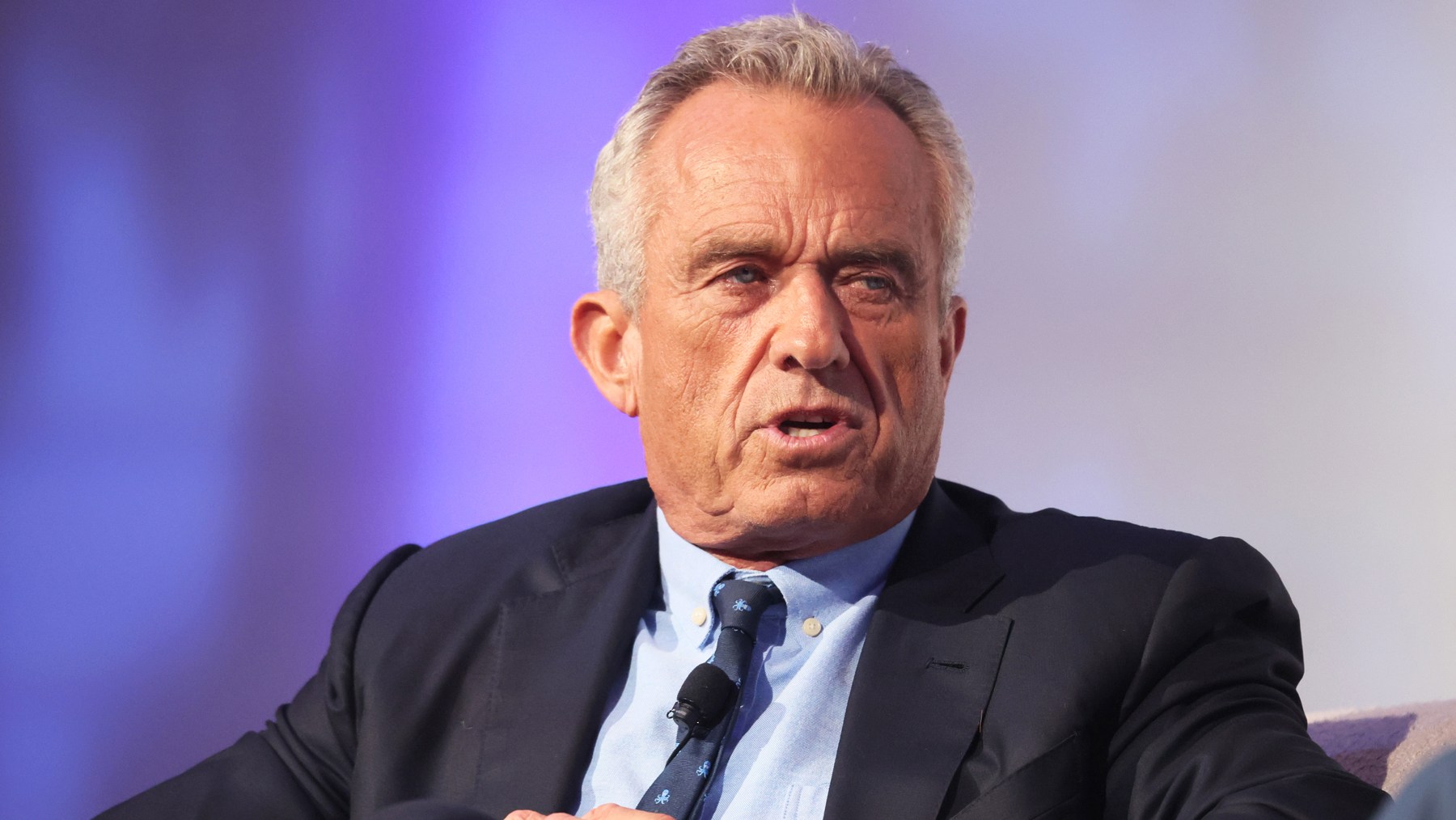RFK Jr. Sues Google and YouTube, Alleging Censorship

Robert F. Kennedy, Jr., the Republican-funded political lightning rod who is seeking the Democratic presidential nomination, has filed a lawsuit against Google and its subsidiary, YouTube, alleging the companies have censored him.
In recent months, Kennedy has raised eyebrows for his conspiracy theorizing and anti-vax views, which have veered into antisemitic and anti-Asian rhetoric. He claims that the tech company collaborated with government officials, “including the Biden White House,” to muzzle him.
In the suit, Kennedy alleges YouTube has removed videos of speeches and interviews he’s given. He claims that the video platform and Google, both private companies with the right to set forth their own terms of use, justify these deletions by relying on their “‘medical misinformation’ policies.” Kennedy claims that suppressing these videos violates his First Amendment rights.
Kennedy is seeking injunctive relief “prohibiting YouTube from censoring him during his political campaign.” He’s also asking for “a judicial declaration that YouTube’s medical misinformation policies are unconstitutional on their face” for the reasons he outlines in the suit.
“YouTube applies its Community Guidelines independently, transparently, and consistently, regardless of political viewpoint,” José Castañeda, a Google spokesperson, tells Rolling Stone. “These claims are meritless and we look forward to refuting them.”
The spark for Kennedy’s ire seems to be the removal of video of what the suit describes as a nearly two-hour speech he gave at Goffstown, New Hampshire’s Saint Anselm College on March 3. “It centered,” the suit says, “on Mr. Kennedy’s concerns about the corrupt merger of corporate and state power … which, in recent years, caused him to question the increasing numbers of vaccines American children must take.” News site Manchester Ink Link describes the speech as “approximately one hour of remarks” in which he pedaled anti-vax views, including that the National Childhood Vaccine Act of 1986 caused diseases. He also criticized Dr. Anthony Fauci, Bill Gates, and President Joe Biden, accusing the commander in chief of attempting to restructure primaries in his favor. Kennedy announced his candidacy on April 19.
Kennedy’s lawsuit alleges: “YouTube … [said] that it ‘removed the [Kennedy speech] for violating our policies on Covid-19 vaccine misinformation …. While we do allow content with educational, documentary, scientific or artistic context, such as news reports, the content we removed from this channel was raw footage and did not provide sufficient context.’”
YouTube also removed Kennedy’s interviews with right-wing Canadian professor Jordan Peterson and Covid vaccine skeptic Joe Rogan, among others, according to the suit.
A Google spokesperson refutes Kennedy’s claims that they’re targeting him, pointing to interviews with Kennedy available on YouTube via Fox News, The Hill, Piers Morgan, and NewsNation. Additionally, Kennedy’s YouTube channel is active with more than 46,000 subscribers and one million views across its videos. The company says it applies its policies equally to all users, regardless of political affiliations.
The suit claims that “Big Tech companies like Google, Facebook and Twitter blamed themselves for the election of Donald Trump as president in 2016” so they are censoring sentiments like Kennedy’s. It also complains about “the Cybersecurity and Infrastructure Security Agency Act of 2018,” which Trump signed into law, because, in Kennedy’s opinion, “CISA’s mission apparently includes removing speech about issues of public concern that the federal government deems dangerous.”
To Kennedy, it’s a conspiracy. “The coordination and collaboration between YouTube and the federal government included developing misinformation policies like the one YouTube has used, and will continue to use, to censor statements that Mr. Kennedy makes in the 2024 presidential campaign,” the suit claims. The filing alleges that White House officials Rob Flaherty and Clarke Humphrey “directed tech companies to remove statements Mr. Kennedy made about the government’s Covid policies,” though the evidence provided in the suit shows Humphrey mentioning Twitter.
“This censorship campaign prevents Mr. Kennedy’s message from reaching millions of voters,” it says. “It also makes it harder for groups that are supporting his campaign to amplify his message through public sources.”
The suit acknowledges that YouTube owns its own website and, “In that sense, youtube.com is private property,” but argues that it’s also a public forum since it hosts videos by the public. “It cannot exclude people from the platform based on their viewpoint,” the suit claims. “It cannot decide which speech people hear. It cannot do that itself and it especially cannot do that, as it has with Plaintiffs, based on a public/private partnership in which YouTube relies on the government to decide what information to censor.”
But since Google is a private company (in any sense), this isn’t true. Google is very clear about its policies regarding what can and cannot be posted with regard to opinions about vaccine on YouTube; the lawsuit even includes the policy as one of its exhibits. Google says it develops its policies with guidance from local and global health authorities; it enforces its policies independently and consistently across its platform. Additionally, Google says it won’t remove content that violates its community guidelines if it has educational, documentary, scientific, or artistic merit, explained in its terms of service.
Kennedy hopes for a trial by jury.
Although he has disputed his anti-vax status, Kennedy has held anti-vaccine views dating back at least 15 years. The AP reports that Covid vaccine skeptics gave him a bigger platform for his views in recent years. One doctor told the news service that Kennedy is running “a propaganda movement” and “absolutely a racist operation.”
This article was updated at 5:10 p.m. on Aug. 3 to reflect statements from a Google spokesperson.
This article has been archived for your research. The original version from Rolling Stone can be found here.

